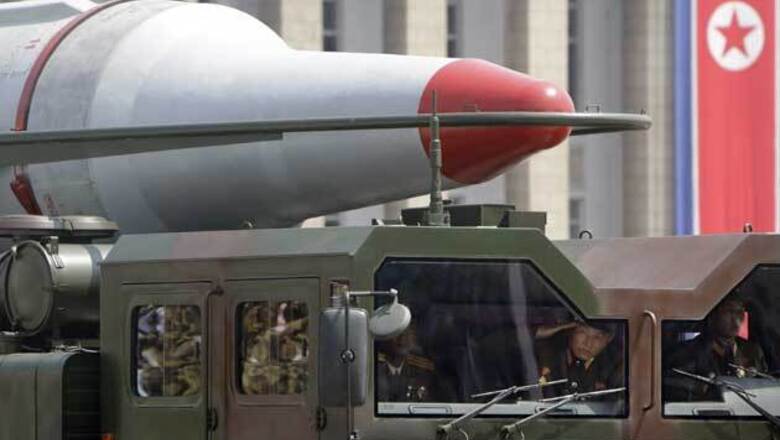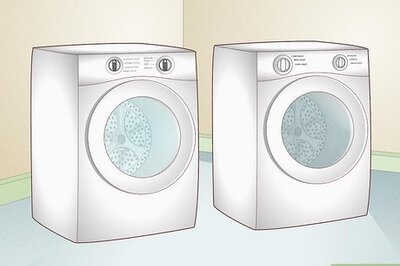
views
North Korea fired missiles into the sea on Wednesday just as US President Barack Obama brought together the leaders of South Korea and Japan to discuss how to deal with Pyongyang and to thaw chilly ties between Washington's two key Asian allies.
The launch of the two medium-range Rodong ballistic missiles began at 2:35 a.m. Japan and Korea time, Japan and South Korea said - precisely when South Korean President Park Geun-hye and Japanese Prime Minister Shinzo Abe were sitting down with Obama in The Hague.
The firing off North Korea's east coast toward Japan appeared to be a show of defiance by Pyongyang.
It followed a series of short-range rocket launches over the past two months, and could help improve cooperation between Tokyo and Seoul in the wake of the first meeting between Abe and Park since the Japanese premier took office 15 months ago.
Japan's relations with South Korea, as well as China, has been strained by what Seoul and Beijing say is Abe's refusal to properly atone for Japan's wartime past.
North Korea's "provocations and threats" would be met by a united response, said Obama, who will visit Japan and South Korea in April.
"It is the first time that the three of us have an opportunity to meet together (on) some serious challenges that we all face," Obama said after meeting both leaders on the sidelines of a nuclear security summit in The Hague
South Korean Defence Ministry spokesman Kim Min-seok told reporters in Seoul that the launches were "a clear violation of UN Security Council resolutions and a grave provocation against South Korea and the international community".
Japanese Foreign Minister Fumio Kishida told parliament that Tokyo had protested against the launches through its embassy in Beijing, while Abe ordered his government to confirm the safety of airplanes and ships in the area.
Defence Minister Itsunori Onodera ordered the military to step up surveillance. US officials also condemned the latest launches.
But Japan's plans to resume high-level talks next week with Pyongyang, suspended since December 2012, would not be affected, Japan's Chief Cabinet Secretary Yoshihide Suga said.
ANNIVERSARY
The first Rodong launches in more than four years also come during annual South Korean-US military drills and on the fourth anniversary of the sinking of the South Korean navy ship the Cheonan. Seoul blames North Korea for that attack, but Pyongyang on Wednesday again denied any role, saying in a commentary the accusation was "a farce".
Wednesday's missiles fell into the sea after flying 650 km (400 miles), well short of their maximum range - thought to be some 1,300 km (800 miles) and enough to hit much of Japan - said an official at South Korea's office of the Joint Chiefs of Staff.
The North was likely "mindful of neighbouring countries' reaction" in setting the trajectory, the official said, without elaborating.
The three-way summit in the Hague focused on North Korea, leaving aside thorny issues between Japan and South Korea.
The three leaders discussed specific steps to deepen coordination, including military cooperation that included joint exercises and missile defence, Obama said.
Abe has visited all 10 Southeast Asian countries and met with their leaders and also met five times with Russian President Vladimir Putin, but had previously not held talks with Park since assuming office. Abe has also not met Chinese President Xi Jinping as premier.
The Japanese leader's December visit to Tokyo's Yasukuni Shrine, seen by critics as a symbol of Japan's wartime militarism, upset not only China and South Korea but also the United States, which expressed "disappointment".
After the meeting in the Hague, Abe said he wanted to deepen cooperation with South Korea, Japan's Foreign Ministry said.




















Comments
0 comment